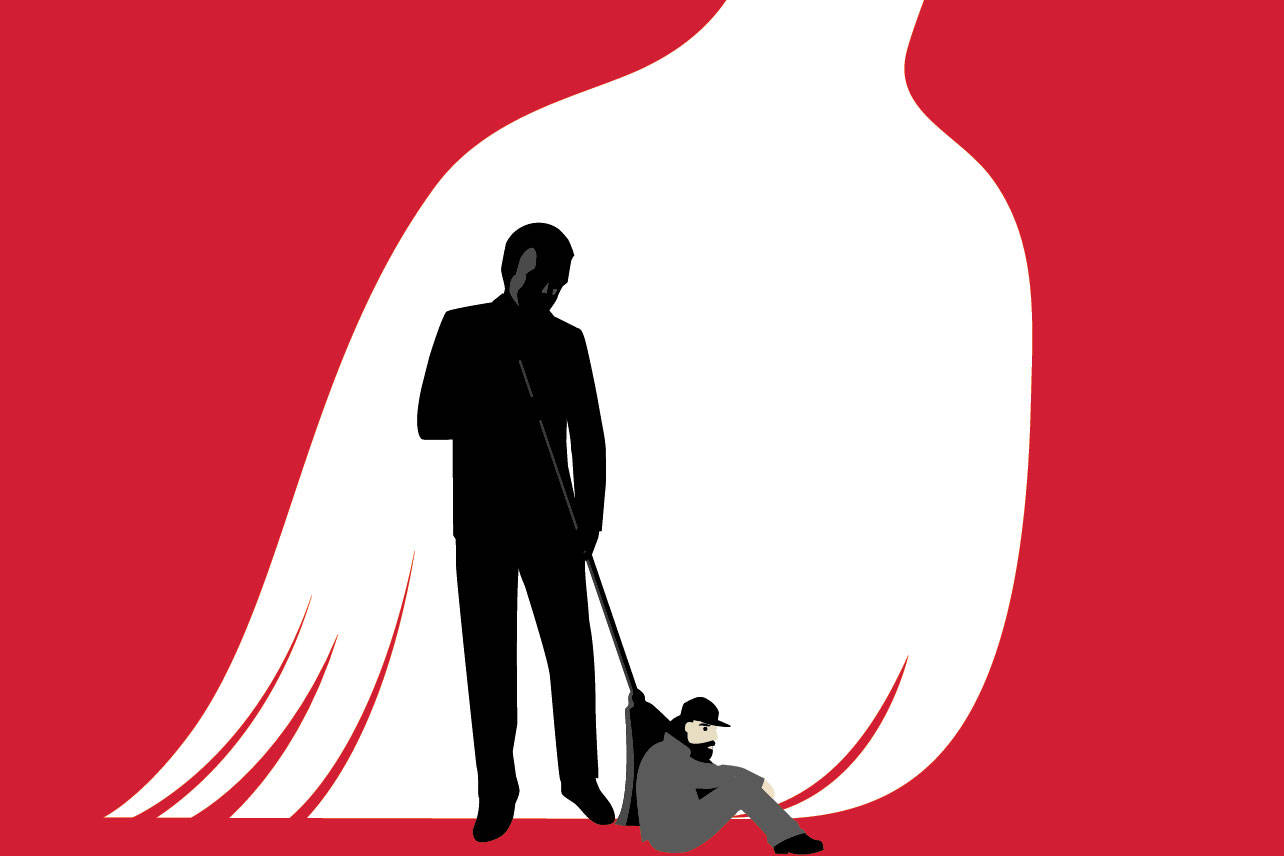On the evening of January 20, Marc and Elizabeth Hokoana went to a protest on the University of Washington campus. He was armed with pepper spray, she with a Glock. By the end of the night, both weapons had been fired onto and into other crowd members, leaving one man on the ground with a bullet hole in his abdomen. The married couple disappeared into the night, only later turning themselves in to police.
On Monday, the King County Prosecutor’s office filed assault charges against the Hokoanas for inciting, then executing, a pair of assaults at that protest. The charges come at the end of an investigation that dragged on for three long months, during which authorities uncovered a trove of evidence. They discovered a Facebook conversation Marc Hokoana had with a friend before the event, in which Marc stated “I can’t wait for tomorrow, I’m going to the Milo event and if the snowflakes get out of hand I’m just going to wade through their ranks and start cracking skulls.” (“Snowflakes” is a derogatory term for liberals.) When his friend asked if he was going to carry a gun, Marc said no but added his wife would. Police also cited snippets of audio captured shortly before the shooting, previously reported by Seattle Weekly, in which Marc can be heard telling Elizabeth, “Don’t shoot anyone” and “They have to start this. They have to start it.”
The victim—and now survivor—is self-described anti-fascist Josh “Hex” Dukes, shot while trying to de-escalate the confrontation that Marc had allegedly created, according to several witnesses and video. Still recovering from the hole in his abdomen, Dukes says he’s not interested in revenge against his attackers. “I refuse not to recognize these people as people, because I refuse to be like them,” he told The Guardian. “Shooting me or someone else cuts off all the things I could do with my life, my job, my relationships. Prison does something similar.” Rather than prison time for his alleged attackers, Dukes seeks a “dialogue and restorative-justice process” for them, according to his lawyer.
It doesn’t particularly matter whether Dukes wants the Hokoanas to be charged. Discretion over pursuing criminal charges resides in the prosecutor’s office, which is currently proceeding toward trial. But it is important to recognize Dukes’ refusal to condone the incarceration of the Hokoanas. It is not just noble; it is also correct. Prison rehabilitates no one, and there is no place for purely punitive “justice” in a truly just society.
Restorative justice is older than civilization, but the term itself was popularized by Howard Zehr’s 1990 book Changing Lenses: A New Focus for Crime and Justice. In contrast to retributive justice, which focuses on punishing criminals for bad behavior, restorative justice foregrounds the victims of crimes, particularly the human relationship between offender and victim, as well as other affected community members. Instead of asking what punishment the offender deserves, restorative justice asks what relief the victims deserve and what steps are necessary to heal the community. Opponents of the proposed new county youth jail point to restorative-justice practices as the first and best alternative to jailing youth, and in recent years the county has piloted the program Family Intervention and Restorative Services (FIRS).
Then there is the case of the Red Square shooter. The Hokoanas’ alleged behavior is unequivocally criminal and, if they are found guilty, must be censured. But how?
We cannot let the shooters simply walk free, because that would condone and normalize their behavior. Yet imprisoning them, as Dukes argues, perpetuates another, more insidious kind of state-sanctioned violence. The dilemma presented by the case is not easily resolved—which makes it extremely valuable as an object lesson in the difficulties of unwinding mass incarceration and our punishment-based criminal-justice system more generally. What do we do with people who attack others? How do we protect victims without relying on a broken carceral system? These are the questions that Dukes’ request presents. We should make an honest attempt to answer them.
editorial@seattleweekly.com





